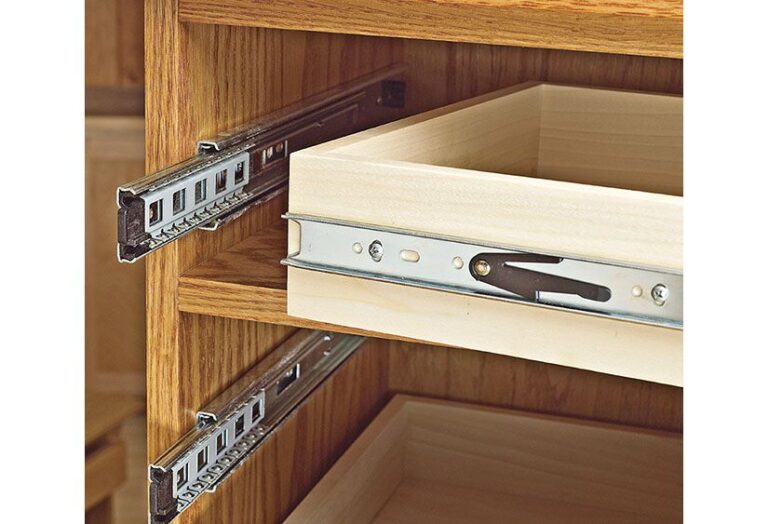Pros and Cons of Domestic vs. Overseas Wholesale Sources
When sourcing products like drawer slides for wholesale, businesses often face a critical decision: whether to purchase from domestic suppliers or overseas manufacturers. Each option has its own set of advantages and challenges that can significantly impact cost, quality, delivery time, and overall business success. Understanding these factors is essential for buyers aiming to optimize their supply chain and profit margins. In this article, we will explore the pros and cons of domestic versus overseas wholesale sources, specifically in the context of acquiring products such as those available through reliable Drawer Slides Wholesale providers.
Advantages of Domestic Wholesale Sources
Faster Delivery and Reduced Lead Time
One of the primary benefits of working with domestic wholesalers is the shorter delivery time. Since products do not have to travel internationally, shipping durations are significantly reduced. This allows businesses to replenish inventory more quickly and respond rapidly to changes in market demand.
Easier Communication and Support
Dealing with suppliers within the same country usually eliminates language barriers and time zone differences. This ease of communication improves problem-solving and reduces the likelihood of misunderstandings regarding orders, specifications, or logistics.
Better Quality Control
Domestic manufacturers and wholesalers often adhere to stricter regulatory standards and quality control measures. This ensures that products like drawer slides meet local safety, environmental, and manufacturing requirements, leading to higher consistency and reliability.
Support for Local Economy
Purchasing domestically supports local businesses and contributes to economic growth within your own country. For companies with sustainability goals or corporate social responsibility initiatives, this can be an important consideration.
Challenges of Domestic Wholesale Sources
Higher Unit Costs
One downside of domestic sourcing is the generally higher cost per unit. Labor, materials, and operational expenses tend to be more expensive domestically, which can translate into higher prices for wholesale buyers.
Limited Product Variety
Domestic wholesalers may offer a narrower range of products or styles, especially in specialized markets like drawer slides. This can limit options for customization or finding unique features that meet specific customer needs.
Capacity Constraints
Some domestic suppliers may have limited production capacity compared to large overseas manufacturers. This can impact the ability to fulfill very large orders within tight deadlines.
Advantages of Overseas Wholesale Sources
Lower Production Costs
Overseas manufacturers, particularly in regions with lower labor and material costs, can offer significantly cheaper prices. This price advantage allows wholesale buyers to maximize their margins or offer more competitive retail prices.
Greater Product Variety
Many overseas suppliers have diverse product lines and extensive customization capabilities. This is especially beneficial for buyers looking for unique drawer slide designs or specialized features that may not be widely available domestically.
Large-Scale Production Capabilities
Overseas factories often have the capacity to handle massive orders, which is ideal for large distributors or retailers requiring bulk quantities without delays.
Challenges of Overseas Wholesale Sources
Longer Shipping Times and Logistics Complexity
International shipping can add weeks or even months to lead times, especially when factoring in customs clearance and potential delays. This requires careful inventory planning to avoid stockouts or excess inventory.
Communication Barriers
Language differences and time zone challenges can complicate negotiations and order management. Miscommunications may result in errors or delays that affect business operations.
Quality Assurance Risks
While many overseas manufacturers produce high-quality goods, inconsistent quality control is a common concern. Buyers must invest time and resources into vetting suppliers, inspecting products, and establishing trust.
Additional Costs and Risks
Import duties, taxes, and shipping fees can add to the total cost of goods. Furthermore, overseas sourcing carries risks related to political instability, trade restrictions, or changes in regulations that can disrupt supply chains.
Making the Right Choice for Your Business
Choosing between domestic and overseas wholesale sources ultimately depends on your company’s priorities, budget, and risk tolerance. For businesses that value rapid turnaround, strong supplier relationships, and consistent quality, domestic wholesalers may be the best fit. Conversely, companies prioritizing cost savings and access to a broad product range may find overseas suppliers more advantageous.
It is also possible to adopt a hybrid sourcing strategy, balancing domestic and overseas suppliers to optimize benefits and mitigate risks. For example, you might source standard drawer slides domestically for quick fulfillment and turn to overseas manufacturers for specialty products or large-volume orders.
Conclusion
Both domestic and overseas wholesale sources come with their distinct pros and cons. Evaluating factors such as cost, quality, delivery times, and communication ease will help you make informed purchasing decisions that align with your business goals. When looking for reliable and quality drawer slides, trusted platforms offering Drawer Slides Wholesale can provide access to a range of options that suit various sourcing strategies. With thorough research and strategic planning, businesses can harness the benefits of both domestic and overseas suppliers to enhance their competitive edge in the market.






